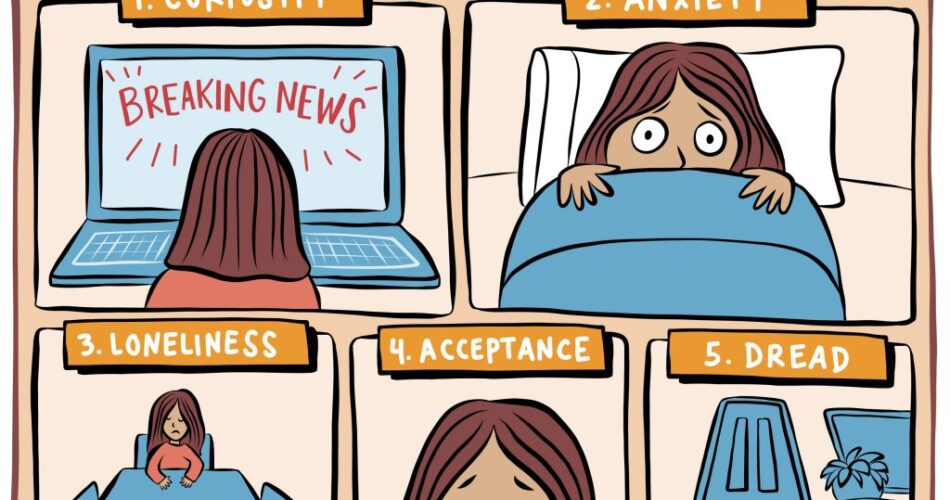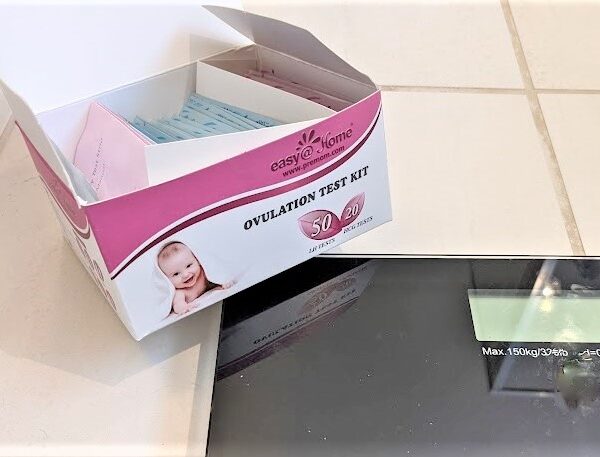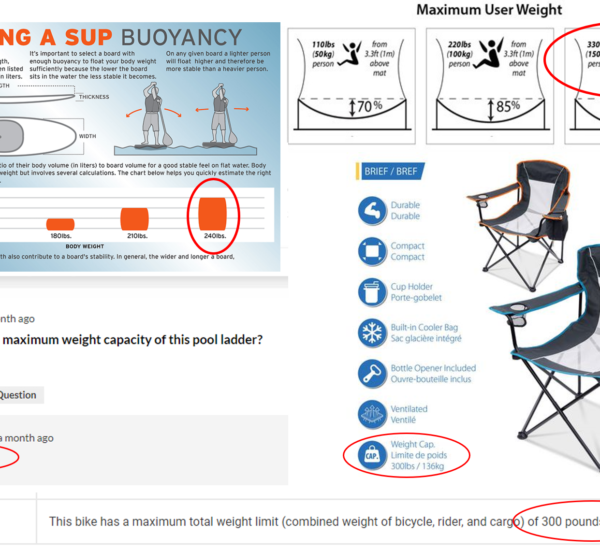Hi Friends,
In the past few weeks, life has been “Opening back up” after over 18 months of working from home, virtual game nights, and isolation (at least where I am). This re-opening was always going to be a big change, and a moment of adjustment and anxiety for a lot of people. COVID is far from “over” and the Delta strain is running rampant across most of North America, and as a mother, I have the added anxiety of having an unvaccinated toddler in daycare. As much as I missed being social, living virtually and isolating at home protected me from a lot of risks.
What I wasn’t aware of until recently, is that isolating and working virtually also protected me from a lot of fatphobia. And I’m not sure I’m ready for that protection to end.
A few weeks ago a fat friend of mine messaged me about this and it struck an immediate chord. Before she messaged me, I hadn’t been able to identify why I was so hesitant to go out. I knew that my husband and I were fully vaccinated, and I trusted that my immune system had mounted it’s response. I knew we would only choose to socialize with friends who were also vaccinated, and that we would mask up in crowded indoor spaces. Still, I had a nagging fear about having to face my coworkers and church friends in person.

After this conversation, I felt better and worse. I had identified and named my fear. I knew in my head that it wasn’t something I was going to let control me, so I started to occasionally socialize, go to church on Sunday, etc. However, since this conversation with my friend – a lot has happened that has made me realize how impactful this change really is for me, and other fat femmes.
One example; a few weeks ago I applied for a job – my dream job – and they requested that I meet with them virtually for an interview. I felt confident, I felt excited, I was appropriately nervous, but as prepared as I could be. I did my hair that day and wore a nicer top. We met over Teams and had a great conversation over video. I literally never once thought about my body. I never worried that they would judge me for being too fat, or that my large presence would somehow damage my chances. Then, I got the job, and given the changing environment and introduction of a “hybrid” work model for staff, my new boss asked me if I wanted to work from the office (now downtown in a busy head office, rather than a satellite location), and I freaked. These people had never met me before. What if they had all these good perceptions of me and then met me in person and immediately changed their mind? What if they felt like I had catfished them? Would I be able to succeed? Could I hide forever?
Another example; I’ve been working from home for the last year, prior to that, I was one Maternity Leave for a year. I have coworkers who haven’t seen me since I was at my skinniest and 8 months pregnant (due to severe HG). I have gained over 40 lbs since then. I have new teammates that have never met me in real life. And this past week we scheduled some real life after-work drinks on a local patio. I suddenly freaked out about what I would wear, if they would notice how much bigger my body is, and make judgments about how “lazy” I am.
I wasn’t afraid that the fatphobia was going to be worse than it had been before – I was afraid that it was going to be the same as before.
Every time I had a commitment in ‘real life’ with people who aren’t in my closest circles, I developed a severe anxiety response about all the potential fatphobia I would be subjected to. The more this happened, the more it made me realize – I wasn’t afraid that the fatphobia was going to be worse than it had been before – I was afraid that it was going to be the same as before. I had been living in a world where I was overlooked for career opportunities based on my body size. Where having a coworker form an opinion of me based on my weight was a reality.
In case you’re wondering how real weight discrimination and fatphobia is, there is a lot of academic research to support that it’s one of the most common forms of discrimination in North America. This study done by researchers at Yale University found that weight discrimination was the 3rd most common form or discrimination women reported after sex and age. Another study, published in Obesity Journal, states that:
“… data suggests that weight stigma and discrimination in the United States has been increasing; the prevalence of weight/height discrimination increased from 7% in 1995-1996 to 12% in 2004-2006 (2). Overweight and obesity discrimination has many deleterious effects on the mental well-being and prosperity of those who have it. Weight discrimination creates health disparities; it heightens the risk of developing eating disorders and unhealthy weight control behaviors as well as increases the risk of higher BMI and metabolic disease development (3). Furthermore, a “wage penalty” has been reported on people who have overweight or obesity, especially for women (4). This data undermines individual and social prosperity of people living with overweight and obesity and perpetuates health inequalities for adolescents and adults in this population.” Sabharwal, S., Campoverde Reyes, K. J., & Stanford, F. C. (2020). Need for Legal Protection Against Weight Discrimination in the United States. Obesity, 28(10), 1784–1785. https://doi.org/10.1002/oby.22974
So it’s real. and my fear of further discrimination usually keeps me from taking bigger risks.
However, COVID had given me a reprieve! A time when my contributions had been evaluated based solely on their merit and quality. During this reprieve I achieved amazing things. I had built relationships with Managers I felt invisible to before. I joined into virtual conversations and classes through my church that stimulated me emotionally and spiritually. I started this blog! I started a petition to make our community centre more accessible! I got my dream job! and now I could see all those safe spaces becoming less safe, and those achievements becoming more unachievable.


None of the barriers I faced or feared are ‘real’ in a physical sense. I wasn’t afraid of literally not fitting. I was afraid of artificial barriers upheld by conscious and unconscious fatphobia and fat bias. If fat people felt less fear of presenting themselves, and were less discriminated against at work or in public based on our appearance, then this would be a non-issue. I could achieve COVID levels of liberation every day.
Now imagine how different the world could be if we removed these barriers and anxieties for all people? In a time when the world was shutting down I became the best, most impactful, version of myself. What would all fat people do when they feel safe and seen?
What could women achieve if they were paid dollar for dollar what men are paid? If they weren’t judged for being ditzy when they’re friendly and bitchy when they’re confident? What would LGBTQ+ people achieve if they didn’t spend a lot of their lives hiding their true selves from their family, friends, and employers? What could we achieve if BIPOC were embraced for their diversity of culture and worldview rather than rewarded for behaving and appearing as ‘white’ as possible, and punished for any visible difference?
I don’t want to get all soap-boxy, but this is a world that is possible, and to change it we have to become aware of our biases and intentionally challenge them. The next time you see someone you’ve only spoken to over the phone, and you think “Oh, that’s not what I thought they’d look like” stop and ask yourself – ‘Does that change what I think of them? Does the texture of their hair, or the size of their waistband change what I will expect of them, or how I will treat them?’. Then ask yourself that question EVERY DAY.
However, it’s not enough for this to only happen in your own heads and hearts. We all need to do our best to support and champion changes to structures and policies. I am not Ibram X. Kendi, but luckily – he is! And he wrote “How to be an Anti-Racist” and it’s amazing. Literally everyone should read it. It taught me about the difference between being “not racist” and being actively “Anti-Racist” and how we shouldn’t be going after individual people to make change – but that we need to go after structures and systems to make meaningful change. The best part about this book and this new awareness, is that it can be applied to all systems of oppression. Once you begin to see how to be actively anti-racist, you can see how to be actively anti-homophobic, or anti-transphobic. The same awareness of your skin privilege leads to an awareness of your thin privilege. Seeing how systems are built to oppress BIPOC alerts you to other ways that systems are in place to oppress fat people and disabled people.
This is also why I constantly remind us here in this space that Body Positivity is not the same as Fat Liberation. Body Positivity focuses on feeling beautiful in spite of being fat – Fat liberation focuses on realizing that fat people shouldn’t have to be beautiful or compliant in order to live a safe, full life. I should have no doubt in my mind that I could have gotten this job, changed my HOA, or built a relationship with that Manager if they had been able to see my whole body instead of just my face. And neither should you.



Comments